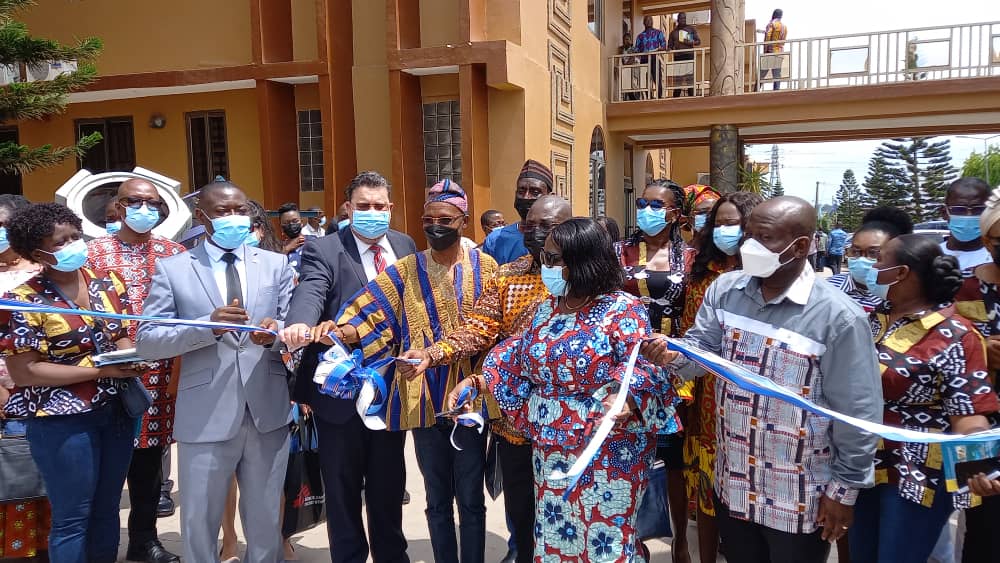26.2 Million Ghanaians lack safe drinking water & basic sanitation – CONIWAS
Source: Health Desk
Chairman, of the Coalition of Non-Governmental Organisations (NGOs) in Water and Hygiene (CONIWAS) Mr. Yaw Attah Arhin, has revealed that about 4.2 million and 22 million Ghanaians are without safe drinking water, and basic sanitation respectively.
He is, therefore, calling on government as well as development partners to increase investments in the sector to address this anomaly.
According to the CONIWAS Chair, investing in water, sanitation, and hygiene is the necessary foundation for a healthy and productive population. Saying “investments in WASH are what sector players call a “no-regrets” investment which has multiplier effects on all productive sectors of the economy.
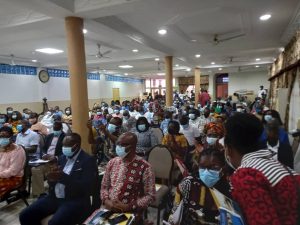
26.2 Million Ghanaians lack safe drinking water & basic sanitation – CONIWAS
Mr. Arhin made this revelation during his welcome address at the opening ceremony of this year’s Mole Conference Series which is taking place at the Anita Hotel, in Ejisu in the Ashanti region
Mole Conference is an annual conference on Water, Sanitation, and Hygiene (WASH) where stakeholders gather to discuss the challenges as well seek for alternative solutions to these challenges in the Water, Sanitation and Hygiene sector.
The theme for the 32nd annual WASH conference is: ‘‘Repositioning the WASH Sector for Emergency Response and Sustainable Development’’
The CONIWAS Chair argued that the economic benefits of good sanitation are about five times the cost, and improving hand hygiene can generate savings in health expenditure of up to fifteen times the cost.
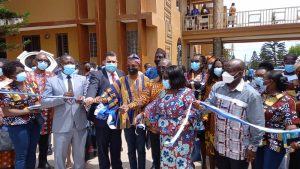
26.2 Million Ghanaians lack safe drinking water & basic sanitation – CONIWAS
Unfortunately, underinvestment in WASH has left 4.2 million Ghanaians without safe drinking water, and more than 22 million without basic sanitation or the means to wash their hands (JMP 2020). He reiterated.
Mr. Arhin, however, quoted the famous American Philosopher, Deepak Chopra who once said “Although we take it for granted, sanitation is a physical measure that has probably done more to increase human life span than any kind of drug or surgery.” To back his claim.
A visibly worried CONIWAS Chair explained that national progress towards delivering on Ghana’s commitments to achieve the Sustainable Development Goal 6 for water and sanitation has rather been slow.
“Sanitation is especially lagging. To achieve the 2030 goals and make sanitation for all a reality, the rate of progress needs to quadruple. And as COVID-19 has shown us, we have no time to waste. We have to build resilience and get it right.” He cautioned.
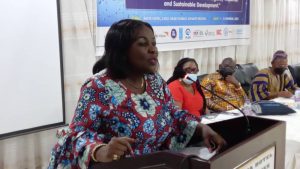
26.2 Million Ghanaians lack safe drinking water & basic sanitation – CONIWAS
According to him, sector watchers have predicted that without sustainable financing arrangements, the current levels of financing may not lead us to the attainment of Sustainable Development Goal 6, and any thought of universal access to sustainable WASH services may remain a perpetual illusion.
It is in this respect that I wish to commend the Government, acting through the Ministry of Sanitation and Water Resources and relevant Ministries, Departments and Agencies (MDAs), for partnering private sector waste management companies, particularly Zoomlion Ghana Limited under the Jospong Group of Companies, to construct state of the art waste treatment facilities in Accra and Kumasi, and cutting the sod for the construction of similar integrated recycling and compost plants in all regions of the country.
We take this opportunity to call for adequate support from the government to the private sector to facilitate the completion of these facilities. Mr. Arhin explained further.
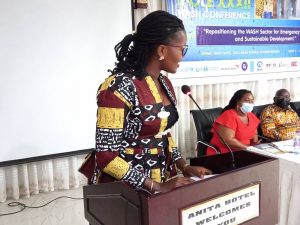
26.2 Million Ghanaians lack safe drinking water & basic sanitation – CONIWAS
CONIWAS through its chairman has appealed to the president and his Cabinet members to expedite action on the establishment of the proposed National Sanitation Authority. (NSA).
In his opinion, the establishment of the proposed NSA will be the Game-Changer in the delivery of improved sanitation in Ghana.
“Even with the seeming delay, I am happy to observe that this is still a priority of the hardworking Minister for Sanitation and Water Resources. We are ever ready and will continue to work with the Ministry and all stakeholders to make the NSA a reality.” He assured.
The coalition and partners with one voice made the following additional recommendations:
That government should take immediate steps to develop a National Hygiene Policy, Finalize a National Roadmap for ending Open defecation, Discuss the Sanitation and Pollution Levy and modalities for disbursement and reporting.
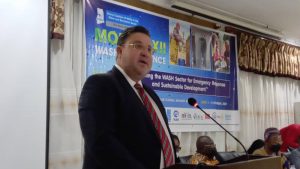
26.2 Million Ghanaians lack safe drinking water & basic sanitation – CONIWAS
Others are to implement suitable financing models for basic sanitation, including a Nationwide Revolving Fund, Review the Environmental Sanitation Policy and the National Strategy and Action Plan as well as to establish a desk at the Ministry to address issues of equity and inclusion.
According to him, his outfit is confident that with increased prioritization, sustainable public investment, accelerated infrastructural development, intensive behaviour change communication, enforcement of regulations and bye-laws, and deepened advocacy and social accountability, the state can make safe water, sanitation, and hygiene a reality for everybody, everywhere in Ghana.
He, however, ended his address by saying until then, we look forward with baited breath to that day when “no community in Ghana will have a water problem or a toilet problem”.
Source: Health Desk


